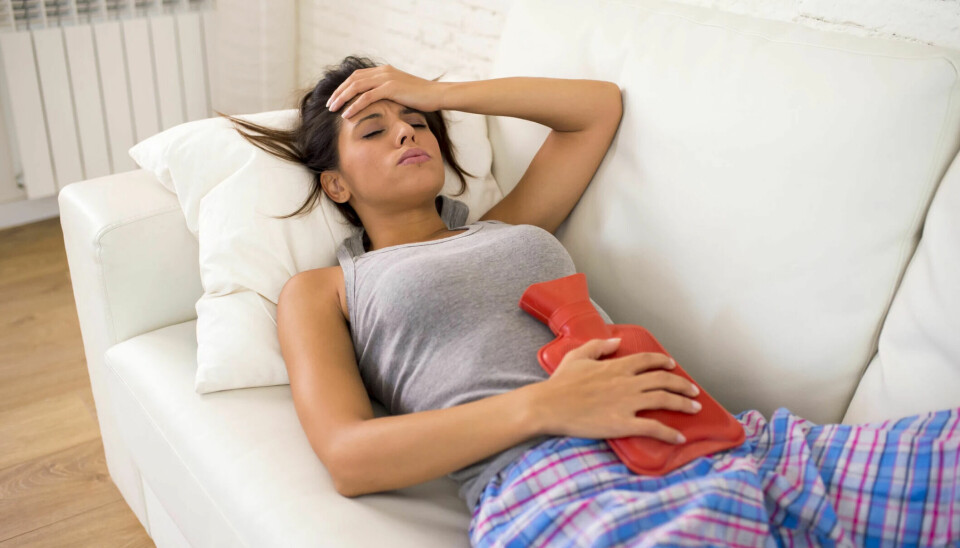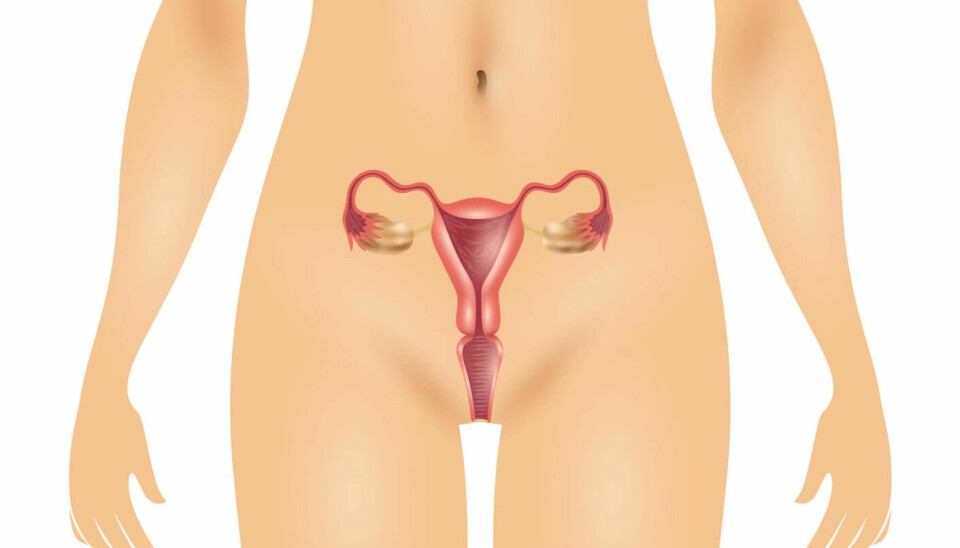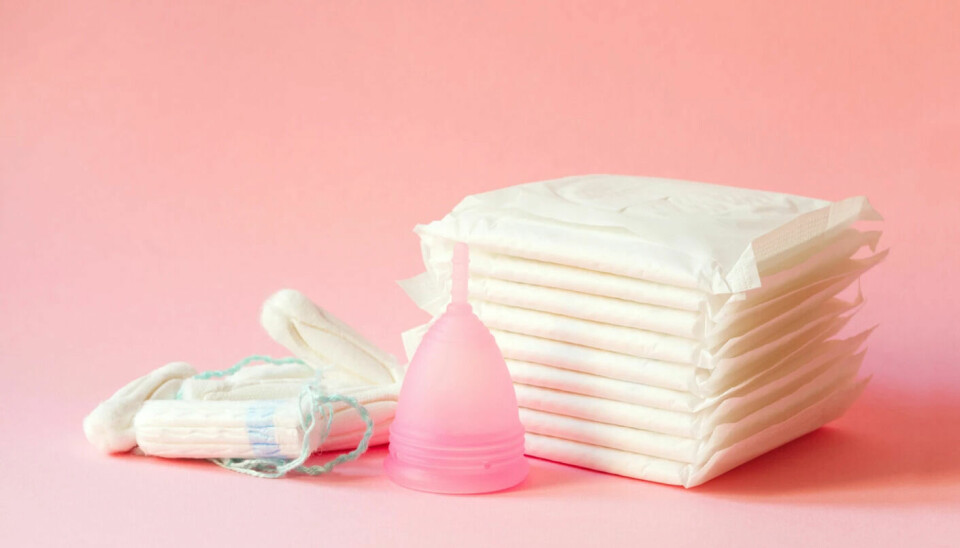
Why are periods painful?
ASK A RESEARCHER: Menstrual pain can range from slight discomfort in the stomach to severe pain in the abdomen, back, and thighs. What is the reason for this?
Menstruation is different for everyone. Some bleed a lot and others bleed a little.
Menstruation also changes throughout life, but there is one thing that most of those who menstruate experience, and that is period pain.
Menstrual pain can range from slight discomfort in the abdomen to severe pain in the abdomen, back and thighs.
But why do we get menstrual pain? We have talked to a researcher.

The mucous membrane does not get oxygen
“When a cycle has passed, the egg is not fertilised, and the hormones drop just before menstruation, a series of processes are initiated that together cause the lining inside the uterus to be expelled,” Guri Majak says.
She is a senior physician at the Department of Gynaecology at Oslo University Hospital, Ullevål. She is also a specialist in obstetrics and women's health.
The mucous membrane is what becomes the menstrual blood along with the unfertilised egg.
For this to happen, the blood to the mucous membrane is shut off so that it dies.
“This is one of the reasons why many experience pain,” she says. “When tissues, no matter where it is in the body, get too little oxygen, it hurts. It’s the same in the uterus.”
The uterus is a huge muscle, and it must expel the entire mucous membrane so that the uterus becomes completely empty and clean.
“This work by the muscles can also manifest as painful cramps, similar to the feeling you get when you’ve lifted something so heavy that you can’t lift anymore,” Majak says.
Some people experience more pain than others
But some people experience stronger menstrual pain than others.
“There are several reasons why some find menstruation more painful than others,” Majak says.
Most viewed
Some have more of the substance that makes the mucous membrane lose its oxygen and also makes the uterus work extra hard.
“This means it’s in high tension all the time. Young people generally have more of this than adults, so the consolation is that this usually improves for many,” she says.

Menstrual pain can be felt in several parts of the body. Some people experience pain in their abdomen, back, thighs, and bottom. Others may even experience headaches.
“The uterus is a close neighbour to an incredible network of nerves in the pelvis, including nerves in the back and those that run down the legs. When the uterus is working hard, it’s not uncommon to feel pain in the back and bottom, as well as down the thighs,” Majak says.
Such pains are completely normal and do not mean that something is wrong. It is worst during the first days of menstruation.
“When hormones drop just before menstruation, many experience headaches,” she says.
Majak explains that the hormone oestrogen is linked to several substances in the brain that are related to headaches.
“When oestrogen levels drop, this balance changes and many people experience headaches,” she says.
Do you poop more during your period?
You may have noticed other things happening to your body when you menstruate. Your stomach works a little faster, you have to poop more often, or you feel bloated. There is also an explanation for this.
“Many find that their stomach behaves differently when they get their period. This is due to both the hormone progesterone and a substance called prostaglandin, which you get a lot of during this phase,” Majak says. “The combined effects of these two substances often lead to feelings of bloating, along with a more unsettled stomach and diarrhoea. This is completely normal and usually goes away after 1-2 days.”
Tampon or menstrual cup?
Tampons and pads come in different sizes, depending on how much you bleed. Some bleed a little, and some bleed a lot. But why do some bleed much more than others?
“The most common reason is that hormones fluctuate, and in some cases, the uterus has simply produced more uterine lining that needs to be shed,” Majak says.
There can be several reasons for the bleeding. If you bleed a lot, you should get checked by a doctor.
“Some may lose so much blood during menstruation that they end up with low iron levels. This can make you feel lethargic and have difficulty concentrating, among other things. It’s important to keep an eye on this,” she says.
During a normal period, you should lose about 80 milliliteres of blood. 80 millilitres is a little less than 1 deciliter. That's a bit more than half a small cup of coffee.
“You should not have to change pads multiple times during the night, nor should you frequently bleed through your clothes,” she says.

Blood clots
Sometimes you may find that the menstrual blood has clotted. This is also completely normal.
“The fact that the blood clots is an extremely important function to ensure that you don’t simply bleed to death,” Majak says.
When the mucous membrane detaches from the uterus, a major repair process is underway, and it's important that the body has control over the bleeding.
“Often, some of the blood collects in the vagina before it comes out, and it naturally clots there as well. When we stand up, go to the bathroom, or cough, we may experience that more blood comes out, including these clots. This is completely normal,” she says.

When should you see your doctor about period pain?
Many of us experience period pain, but how painful should it really be?
“Generally, the pain should never be so severe that you have to miss school or skip out on the social activities you usually participate in. You should not vomit or faint. If that happens, you need to seek help,” Majak says.
What doctors do when someone has extreme menstrual pain is that they reduce the substances that make the mucous membrane detach from the uterus.
“This should work well so that you can quickly return to normal activities even during menstruation. If it doesn't, it is important to have another talk with your doctor and see if a further referral to a gynaecologist is appropriate to see if there could be another cause for the pain,” she says.
“It’s perfectly normal to have to be a bit more mindful of your body and take it easier days during menstruation, but life shouldn’t come to a halt, and you shouldn’t be in terrible pain,” Majak concludes.
———
Translated by Alette Bjordal Gjellesvik.
Read the Norwegian version of this article on ung.forskning.no
------





































